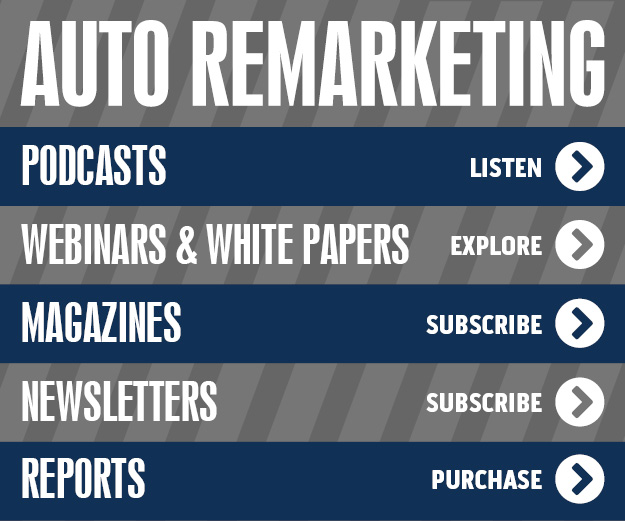Manheim index climbs 5% to new series high

As Auto Remarketing reported, the July seasonally adjusted annualized rate for used-car sales hit the highest point for the start of a third quarter in six years.
That sales pace Cox Automotive highlighted as well as the recent lane activity Black Book recently witnessed appear to be fueling a wholesale market turbine that’s pushing one of the industry’s benchmarks to a new high.
Cox Automotive recapped that wholesale used-vehicle prices (on a mix-, mileage-, and seasonally adjusted basis) increased 1.51 percent month-over-month in July. Analysts explained the movement brought the Manheim Used Vehicle Value Index to 136.9, which represented a 5.1-percent increase from a year ago and the highest level ever for the series.
Looking at trends in weekly Manheim Market Report (MMR) prices, Cox Automotive indicated that the abnormal summer bounce that started in June continued and strengthened in July.
“Correspondingly, the best-selling cars at Manheim are worth more today than a month ago, and many vehicles are worth more now than a year ago,” analysts said. “Price comparisons to last year will be tougher through the rest of the year; but recent weekly increases were higher than last year, keeping current price performance ahead of last year.”
Over at Black Book, editors recently noticed how depreciation slowed again.
According to the latest edition of Black Book Market Insights, a handful of cars are continuing to show some of the strongest one-month retention trends during July — a time when cars are historically supposed to begin seeing heavier depreciation heading into the late summer months.
Volume-weighted, overall car segment values decreased by 0.22 percent last week, according to Black Book. In comparison, editors mentioned the market values had decreased by 0.25 percent on average in the prior four-week period.
“Wholesale markets values are steady as dealers continue to stock up on inventory for used vehicles due to strong retail,” said Anil Goyal, executive vice president of operations at Black Book.
On the truck side, Black Book’s volume-weighted information showed that overall truck segment values (including pickups, SUVs and vans) decreased by 0.15 percent last week. In comparison, the market values had declined by 0.26 percent on average during the previous four-week period.
Black Book’s anecdotes from the lanes added further color to the numbers editors tabulated.
An auction general manager in Connecticut told Black Book’s representative, “We have recently had record sales regarding consigned vehicles and sales conversions which have consistently been above 70 percent.”
Next door in Massachusetts, the lane watcher recapped, “The dealers are willing to spend extra money on the nicer units. The captives and the fleet/lease sellers had their best sale in weeks.”
And in the Midwest, the pace of sales was reinforced by the observer stationed in Indiana saying, “Dealer business is good, so they are buying replacement vehicles for their lots. Trucks and luxury cars are still scarce as is any vehicle that is really nice.”
Turning back to the Cox Automotive wholesale assessments, the Manheim data showed all major market segments saw price gains on a year-over-year basis in July. Compact cars and midsize cars outperformed the overall market, rising by 5.2 percent and 7.2 percent, respectively. Not far off the overall price rise were pickups (up 3.3 percent), utility vehicles (4.5 percent) and vans (up 3.4 percent).
Even within the rental-risk space, Cox Automotive spotted how pricing strengthened.
Analysts indicated the average price for rental risk units sold at auction in July was up 6 percent year-over-year and 1 percent month-over-month.
Cox Automotive added that the average mileage for rental risk units in July — at 45,200 miles — rose 9 percent year-over-year and 6 percent month-over-month.
Cox Automotive closed the commentary analysts shared with the latest Manheim Index update by trying to summarize what all of the unusual wholesale trends mean.
“The strange summer price appreciation in used cars is partly a function of a strong economy at its peak, with mounting affordability challenges for the consumer that favor growth in used-vehicle sales at the expense of new,” analysts said. “These conditions have supported strong used-vehicle prices for over a year.
“The catalyst for even stronger price movement this summer is the fear of import tariffs’ leading to higher prices in the future,” they continued. “Higher prices and the related declining level of supply create a psychological feedback loop for consumers, encouraging buying now with the expectation that prices may be higher later.”

 View The Latest Edition
View The Latest Edition

